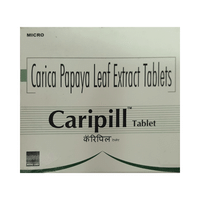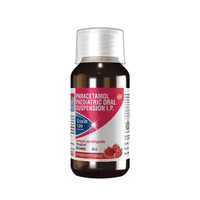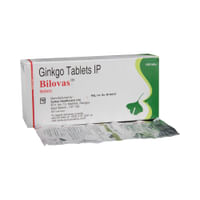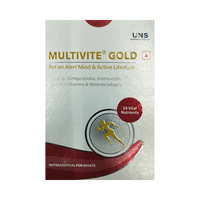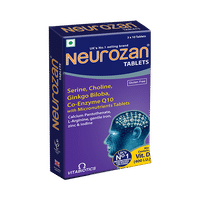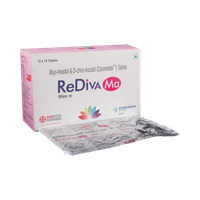Rs.562for 1 strip(s) (10 tablets each)
food interaction for Citiclot P
alcohol interaction for Citiclot P
pregnancy interaction for Citiclot P
lactation interaction for Citiclot P
food
alcohol
pregnancy
lactation
Citiclot P 500mg/800mg Tablet may be taken with or without food, but it is better to take it at a fixed time.
None
None
CAUTION
It is not known whether it is safe to consume alcohol with Citiclot P 500mg/800mg Tablet. Please consult your doctor.
CONSULT YOUR DOCTOR
Information regarding the use of Citiclot P 500mg/800mg Tablet during pregnancy is not available. Please consult your doctor.
CONSULT YOUR DOCTOR
Information regarding the use of Citiclot P 500mg/800mg Tablet during breastfeeding is not available. Please consult your doctor.
CONSULT YOUR DOCTOR
SALT INFORMATION FOR Citiclot P
Citicoline(500mg)
Uses
Citicoline is used in the treatment of stroke, head injury, Alzheimer's disease and dementia in Parkinson's disease.
How it works
Citicoline is a nerve protecting medicine. It works on the brain by nourishing the nerve cells, protects them from damage and improves their survival.
Common side effects
Headache, Edema (swelling), Insomnia (difficulty in sleeping), Anxiety, Hypotension (low blood pressure), Weakness, Gastrointestinal disturbance, Dizziness, Restlessness, Epilepsy
Piracetam(800mg)
Uses
Piracetam is used in the treatment of Alzheimer's disease, stroke, dementia in Parkinson's disease, age related memory loss and head injury.
How it works
Piracetam is a nootropic medicine. It works by increasing the activity of a chemical messenger (acetylcholine) which improves communication between the nerve cells. It also protects the brain and nervous system against shortness of oxygen.
Common side effects
Nervousness, Weight gain, Abnormality of voluntary movements
SUBSTITUTES FOR Citiclot P
343 Substitutes
343 Substitutes
Sorted By
 Rs. 848pay 47% more per Tablet
Rs. 848pay 47% more per Tablet Rs. 519save 10% more per Tablet
Rs. 519save 10% more per Tablet Rs. 808pay 43% more per Tablet
Rs. 808pay 43% more per Tablet Rs. 490save 15% more per Tablet
Rs. 490save 15% more per Tablet Rs. 825pay 40% more per Tablet
Rs. 825pay 40% more per Tablet
Expert advice FOR Citiclot P
- Citicoline helps in the treatment of stroke, head injury, Alzheimer's disease, and dementia in Parkinson's disease.
- Do not take this medicine in higher amounts or frequency than that told by your doctor.
- Do not drive or do anything that requires mental focus until you know how it affects you.
- Inform your doctor if you develop an allergic reaction after taking the medication.
- Side effects such as trouble sleeping, diarrhea, stomach pain, decreased blood pressure, irregular heart rate may occur with Citicoline. These may not be with everyone.
- Any of the side effects other than those mentioned above if occur, do consult the treating physician.
Frequently asked questions FOR Citiclot P
Citicoline
Q. I have been prescribed Citicoline for Alzheimer’s disease. What is its role, and how does it work?
Citicoline is a form of an essential nutrient called choline which is naturally present in the body. It protects the nerve cells in the brain from damage and also helps to repair the damaged nerve cells. Therefore, it improves learning, memory, and cognitive function (processing information or perception) in Alzheimer’s disease.
Q. Can I take alcohol during treatment with Citicoline?
There are no studies to determine the effect of alcohol on treatment with Citicoline. However, since Citicoline is prescribed for stroke, Alzheimer’s disease, Parkinson’s disease, head injury, and age-related memory impairment, it is best to avoid the consumption of alcohol.
Q. Can students take Citicoline to improve memory and learning?
No, students should not take Citicoline since studies show that Citicoline is effective only in age-related memory problems, memory problems associated with long-standing stroke, and in Alzheimer’s disease. Moreover, there is no data available for use of this medicine in children.
Piracetam
Q. If I do not see an improvement in my symptoms, can I stop taking Piracetam?
No, do not stop taking Piracetam on your own. Stopping it suddenly may have unwanted effects like twitching and jerking movements. If Piracetam does not improve your symptoms, consult your doctor. The doctor may suggest a slow reduction of Piracetam dose.
Q. Who should avoid taking Piracetam?
You should not take Piracetam if you are allergic to Piracetam or any of the ingredients in the medicine. Also, avoid taking Piracetam if your kidney functions are severely deranged or if you ever had localized bleeding in the brain (cerebral hemorrhage). You should also avoid taking this medicine if you are suffering from Huntington’s disease/chorea (a genetic disorder where the brain cells die quickly causing deterioration of mental and physical abilities over time).
Q. What is the correct way of taking Piracetam?
Piracetam can be taken with or without food. Swallow the tablets as a whole with a glass of water. Do not break or chew the tablets. If you find it difficult to swallow, tell your doctor as soon as possible. Your doctor may prescribe Piracetam in the form of a solution.

















